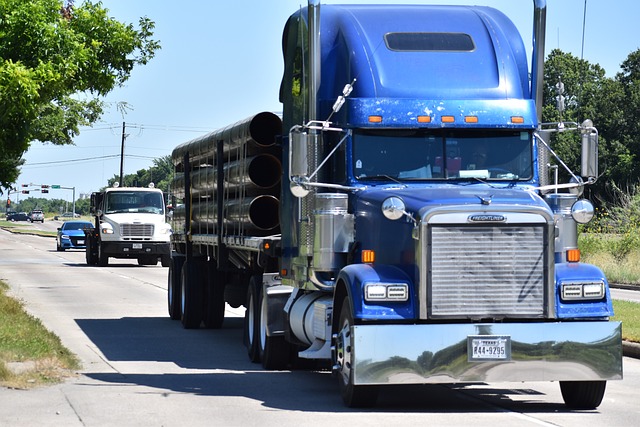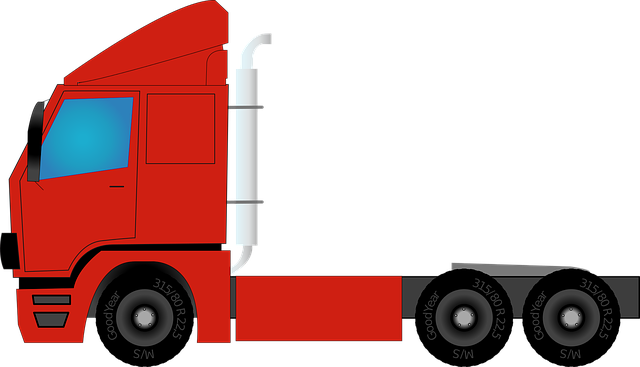Box truck operators require specialized insurance for box trucks that go beyond standard vehicle coverage, addressing risks like cargo liability, physical damage, and theft. Customized plans should include liability, collision, and cargo insurance tailored to operational needs, such as cargo type, travel distances, and storage arrangements. Robust risk management strategies, including driver training, maintenance checks, and inventory management, further reduce these unique risks. Understanding policy coverage is vital for navigating claims and ensuring protection against unexpected events.
In today’s dynamic logistics landscape, box truck operators face unique challenges that demand tailored solutions. Navigating the intricate world of insurance for box trucks is a crucial step in ensuring operational smoothness and financial protection. This comprehensive guide delves into the essential aspects of crafting custom plans designed to meet the specific needs of box truck operators. From understanding insurance nuances to implementing effective risk management strategies, we equip you with the knowledge to make informed decisions.
- Understanding Your Insurance Needs for Box Trucks
- Key Components of a Customized Trucking Insurance Plan
- Risk Management Strategies for Box Truck Operators
- Navigating Claims and What Your Policy Covers
Understanding Your Insurance Needs for Box Trucks

For box truck operators, understanding your insurance needs is a crucial step in ensuring smooth operations and financial protection. Insurance for box trucks goes beyond basic vehicle coverage; it includes specific risks associated with transporting goods. This often involves cargo liability, which protects against losses or damages to the items being transported, as well as physical damage to the truck itself.
When navigating insurance for box trucks, operators should consider their unique operational requirements. Factors such as the type of cargo handled, travel distances, and storage arrangements can significantly impact the level of coverage needed. Accurate risk assessment enables operators to tailor their insurance plans, securing comprehensive protection that aligns with their specific needs in today’s bustling transportation landscape.
Key Components of a Customized Trucking Insurance Plan

When crafting custom plans for box truck operators, several key components ensure comprehensive insurance coverage tailored to their unique needs. These include liability protection, which covers damages caused to others during transit, and collision insurance that mitigates financial losses in case of accidents. Additionally, cargo insurance is vital to safeguard against theft or damage to the goods being transported, providing peace of mind for operators and ensuring business continuity.
Customized plans should also factor in specific risk assessments unique to box truck operations. This may involve considering specialized cargo types, operating environments, and even seasonal variations that impact liability profiles. Tailoring insurance policies to these nuances allows for more precise coverage, offering operators a tailored safety net that aligns with their specific business activities and helps them navigate the complexities of insurance for box trucks effectively.
Risk Management Strategies for Box Truck Operators

Box truck operators face unique risks on the road, from cargo damage and theft to accidents and natural disasters. Implementing robust risk management strategies is essential for mitigating these challenges. One critical aspect is securing adequate insurance coverage tailored specifically for box trucks. This includes liability insurance to protect against claims related to property damage or personal injuries caused during operations. Cargo insurance is also vital to cover the value of goods carried, safeguarding operators from financial losses due to theft, damage, or loss during transit.
Additionally, drivers should be trained in safety protocols, including defensive driving techniques and emergency handling procedures. Regular maintenance checks on vehicles can help identify potential hazards and reduce the risk of breakdowns or accidents. Efficient inventory management practices, such as secure cargo securing methods and regular tracking, further minimize risks associated with cargo loss or damage.
Navigating Claims and What Your Policy Covers

Navigating Claims and Understanding Coverage is a crucial aspect of owning and operating a box truck. As a box truck operator, it’s essential to familiarize yourself with your insurance policy and what it covers. Insurance for box trucks typically includes liability coverage, which protects you against claims related to property damage or personal injury caused during the course of your operations. This means if an accident occurs and someone files a claim, your insurance provider will step in to help cover legal fees and damages.
When it comes to making a claim, knowing what your policy entitles you to is vital. Most policies also include comprehensive coverage, which protects against non-collision related incidents such as theft, vandalism, or natural disasters. Understanding these coverage options ensures that when unexpected events arise, you’re not left burdened with costly repairs or legal repercussions. Always review your insurance documents thoroughly and don’t hesitate to reach out to your provider for clarification on any points.
Customizing an insurance plan tailored to your box truck operations is a strategic move that can protect your investment, save you money, and offer peace of mind. By understanding your unique risks, ensuring comprehensive coverage, and implementing effective risk management practices, operators can navigate the road ahead with confidence. Remember, a well-crafted insurance policy for box trucks is an essential tool in mitigating potential losses and fostering sustainable business growth.
